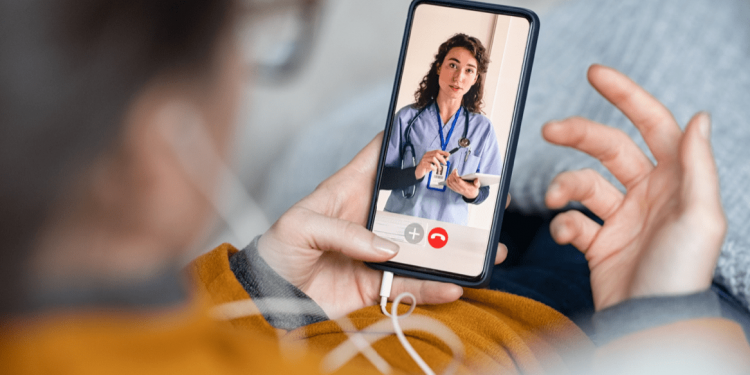As of 2022, there were 227,500 health apps available in the UK, with the country’s booming digital health market expected to be worth £23.98bn by 2025. These apps have brought mental health assessments, virtual GPs, and medical appointment bookings to our fingertips, and we can carry an expansive library of healthcare products and services in our pockets.
One of the most prominent uses for healthcare apps is booking medical appointments, which we can now do from home, on our terms, without needing to see our regular family doctor or GP. This brings a host of benefits to patients as consumers, including a wider choice, accessibility, and flexibility when it comes to finding and arranging our healthcare.
Speed and efficiency
It is no secret that waiting lists to access care through the UK’s National Health Service (NHS) are longer than ever before, with over 7.5 million people currently waiting for treatments and tests. With digital healthcare apps, it is possible to book a virtual GP appointment in a matter of minutes, with many services available 24 hours a day.
This is appealing to people who do not have time to call their local GP surgery or are at work during clinic hours. They can use their phone to book what they need, when they need it, and get answers as quickly as possible. Many of these services are self-pay and private, but the NHS does offer online healthcare access through apps such as Patient Access.
Flexible hours and locations
The post-covid economy has changed how we work in many ways, including an increase in remote working and digital nomadic lifestyles. Being registered to a GP near your workplace, or your home, may not be convenient if you divide your time between multiple locations.
Companies such as Scan.com offer medical imaging appointments, such as MRI, CT, and ultrasound scans, at over 150 locations nationwide, so no matter whether you see a virtual or in-person GP, or travel around regularly, you can schedule imaging when and where it is most convenient for you.
Interconnectivity
While more people than ever before are turning to private and self-pay healthcare, according to statistics from YouGov, the route from diagnosis to onward care is often unclear. Apps make it possible to slot self-pay services into an NHS pathway, and vice-versa, with digital results that can be easily shared between public and private providers.
For example, diagnostic imaging reports obtained privately can be shared with an NHS GP to access onward care, including consultant appointments and surgeries, quickly and easily.
Improvement of processes, tools, and accessibility
In an age where everything can be done on our mobile phones, healthcare should be no different. But, with paper referral notes, huge administrative staff teams, CDs containing imaging results, and even faxes still a regular part of many UK hospitals, you could say the industry is dragging its feet. Many healthcare apps provide workflow solutions for providers to improve their workflows and efficiency.
Dr Lizzie Tuckey, Managing Director at Scan.com commented: “Apps and online platforms make healthcare more patient-led, with a greater choice of what services they need and when they want to be seen. This improves access, reduces missed appointments, and works both ways as it saves providers’ time and resources.”
While the digital health market is booming, so is the use of Artificial Intelligence (AI). While AI has had some early successes in healthcare when it comes to spotting anomalies in scan results or providing patient-friendly reworded medical reports, embedding apps into the digital health landscape could also help build valuable data resources to bolster the role of AI in healthcare.
Digital health apps provide many opportunities for patients to lead their care and empower them with more expansive choices and transparency of their options. Meanwhile, healthcare providers can benefit from technology-led workflows and the operational efficiencies they can provide. Digital healthcare is here to stay, and early apps that are learning and expanding will be vital to the future advancement of health tech.













